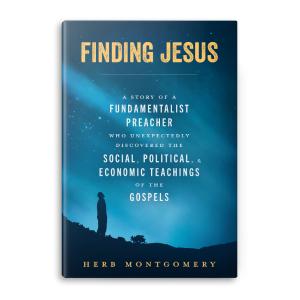
One last passage from Jeremiah:
“And go out to the VALLEY OF THE SON OF HINNOM (Gehenna) at the entry of the Potsherd Gate, and proclaim there the words that I tell you. You shall say: Hear the word of the LORD, O kings of Judah and inhabitants of Jerusalem. Thus says the LORD of hosts, the God of Israel: I am going to bring such disaster upon this place that the ears of everyone who hears of it will tingle. Because the people have forsaken me, and have profaned this place by making offerings in it to other gods whom neither they nor their ancestors nor the kings of Judah have known; and because they have filled this place with the blood of the innocent, and gone on building the high places of Baal to burn their children in the fire as burnt offerings to Baal, which I did not command or decree, nor did it enter my mind. Therefore the days are surely coming, says the LORD, when this place shall no more be called Topheth, OR THE VALLEY OF THE SON OF HINNOM, but THE VALLEY OF SLAUGHTER.” (Jeremiah 19:2–6)
Welcome Readers! Please subscribe to Social Jesus Here.
(Read this series from the beginning at Part 1 and Part 2.)
I want to be clear. Jerusalem was not destroyed by Rome in 70 C.E . because God was punishing Jews for rejecting Jesus. This trope by Christians has had a long harmful history for Jewish people. The destruction of Jerusalem was instead brought about in the wake of the Jewish-Roman war of 66-69 C.E. This war resulted from the rich exploiting the poor and poor people revolting, taking over the temple, burning the records of their debt, and ultimately making Jerusalem their center of operations as they struck Rome itself. Their revolt provoked the full weight of the Roman Empire coming down on their heads.
In this week’s reading, then, the original audience would have heard Jesus encouraging them not to fear being killed for following him as he spoke out against the exploitation of the poor. They would have heard him advising them to fear remaining silent, to not go along with exploitation that would plunge all of Jerusalem into a “Gehenna” at the hands of Rome. Again, it’s important to remember this was all written after the fact, with the community’s hindsight helping them to map social, political and economic causes for what they had just gone through.
What does this passage have to say about how unsustainable our predatory and exploitative capitalist system today is, both environmentally and economically? What might our Gehenna look like today? Climate change scientists tell us that our Gehenna is coming too. Economic and environmental exploitation in the wake of the industrial revolution is unsustainable, period.
Matthew’s community would have heard Jesus say that speaking out against injustice is divisive: it divides like a sword. And in that world, family ties were more than just relationships, they were also the means of economic survival. But for Jesus, preserving family ties was not a higher priority than speaking out against injustice or the harm being done to those their society had made vulnerable.
Lastly, Jesus encourages his followers to take up their own crosses. I want to be very careful here. Too often Christians have told victims of abuse and injustice that they must simply bear their cross. This is effectively saying the opposite of our reading this week: it would mean to keep silent and passively bearing injustice.
But in the context of our reading, remember that Jesus followers are threatened with the cross for speaking out against injustice. Bearing a cross is not inherent to following Jesus. A cross is only invoked when those with power and privilege become threatened by egalitarian change and threaten those calling for change if they don’t shut up.
To people in that situation, Jesus is saying, don’t be silent. Speak out, resist, keep calling for change, even if they threaten you with a cross for doing so. It is better to take up one’s cross, to speak out against injustice and harm, than to lose your soul, your very being, who you are and your commitment to justice, by choosing to be silent in the face of injustice.
What does it mean to follow Jesus in the context of what we are facing today?
 Herb’s new book, Finding Jesus: A story of a fundamentalist preacher who unexpectedly discovered the social, political, and economic teachings of the Gospels, is now available at Renewed Heart Ministries.
Herb’s new book, Finding Jesus: A story of a fundamentalist preacher who unexpectedly discovered the social, political, and economic teachings of the Gospels, is now available at Renewed Heart Ministries.














